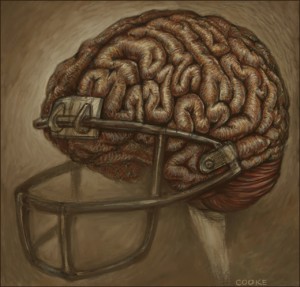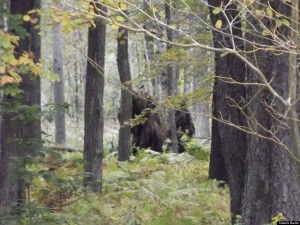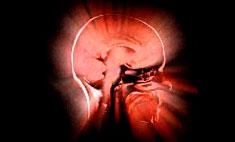Football Denialism?
 Here’s a form of denialism I haven’t run into before: football concussion denialism.
Here’s a form of denialism I haven’t run into before: football concussion denialism.
PBS’s Frontline has an episode on the topic here.
Oct
8
 Here’s a form of denialism I haven’t run into before: football concussion denialism.
Here’s a form of denialism I haven’t run into before: football concussion denialism.
PBS’s Frontline has an episode on the topic here.
Oct
4
 What is the difference between deduction and induction? We usually focus on the fact that deductive arguments are rigorously truth-preserving (when they're valid, that is) while inductive arguments at best make their conclusions more likely.
What is the difference between deduction and induction? We usually focus on the fact that deductive arguments are rigorously truth-preserving (when they're valid, that is) while inductive arguments at best make their conclusions more likely.
But there's another, arguably more important feature that gets little notice.
When you have a deductive argument with uncertain premises, adding more uncertain premises will always lower the likelihood that the conclusion is true. More premises leads to less confidence.
With inductive arguments (broadly conceived) the reverse is true. Including more uncertain premises can raise the likelihood that the conclusion is true.
A deductive argument is like a chain. It is only as strong as its weakest link.
An inductive argument, on the other hand, is like a rope. Each individual thread may be weak, but they are combined in such a way that the whole is far stronger than any of the parts.
The challenge we face is in understanding how we can put together a number of weak claims to produce a structure that can strongly support a conclusion. That's the real problem of induction.
Oct
4
 Boy, I can hardly keep up with all the bigfoot news these days.
Boy, I can hardly keep up with all the bigfoot news these days.
One exciting thing about this sighting is that that there are two sasquatches together. A breeding couple? Are we approaching the realm of biological feasibility?
Click here for the story and more pics.
Oct
3
The Sasquatch Genome Project apparently has pretty definitive proof of the existence of Sasquatch.
They got a few on video. (Apparently this time in Texas! Those bigfeet really do get around.)
The folks at the Sasquatch Genome Project have had some trouble getting their research published in standard peer-reviewed science journals, so they took the unusual step of essentially buying their own journal, now called the DeNovo Journal of Science. Dr. Ketchum of the SGP explains:
Rather than spend another five years just trying to find a journal to publish and hoping that decent, open-minded reviewers would be chosen, we acquired the rights to this journal and renamed it so we would not lose the passing peer reviews that are expected by the public and the scientific community.
This leaves us with an important question: Should we consider articles published in this journal to have passed scientific peer review of the sort "expected by the public and the scientific community"? (The editor of Doubtful News thinks we shouldn't.)
What are epistemic and/or sociological functions of peer review? (Yes, that is a hint for a possible paper topic.)
Oct
2
Sep
27
 . . . especially if it's another bigfoot hunter who's hurling the insult?
. . . especially if it's another bigfoot hunter who's hurling the insult?
Ken white, over at the Popehat blog, argues that calling bigfoot hunters crazy doesn't count as libel, but is instead expressing an opinion, which, here in America at least, is protected speech under the First Amendment.
What I find fascinating is the fact that some bigfoot hunters have standards of rationality that lead them to label others as "crazy." I'd like to find out what standards the bigfoot hunter has in mind.
Also, I was intrigued to learn about a Bigfoot Massacre, that I had never heard of.
(Santa Bigfoot is from a fun bigfoot news story here.)
Sep
25
Here's a great poster of the history of life on Earth with indications of timescales and major developments. Note the indication of symbiotic events (including the formation of eukaryotes by endosymbiosis of bacteria and archaea).
HHMI also has an EarthViewer App which lets you travel back in time and see what the Earth used to be like. You need an iPad, or Android device -- which I don't have, so I haven't been able to play with this one.
But I do have the Time Tree app, which tells you when the last common ancestor of any two types of organisms lived. You just type in "human" and "frog", for example, to find out that our last common ancestor wats about 371 million years ago (which is about right, since that was the time of the first tetrapods).
Sep
24
Sep
20

John Brock says yes, but we need to understand how models work in science. (Check out the video on Rosaland Franklin at that link.)
At Discovery Blogs, Neuroskeptic says we're asking the wrong question. That may be so, but I think Neuroskeptic's substitute question ("Is it true?") isn't much better. A lot of very good science isn't "true." But it's still much better than pseudoscience. We should be looking for quality of justification rather than for "truth" here.
Sep
18
 Phil Plait (the "Bad Astronomer") deals with a denialist who thinks only a bad scientist would claim there's no place in science for "proof."
Phil Plait (the "Bad Astronomer") deals with a denialist who thinks only a bad scientist would claim there's no place in science for "proof."
A few quick points that tie into lecture: